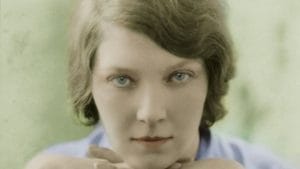11-13 September 2014
Paris, France
Université Sorbonne Nouvelle – Paris 3
Institut du Monde Anglophone
5, rue de l’École de Médecine
75 006 Paris
An International Conference organised in association with the Ford Madox Ford Society,Université Sorbonne Nouvelle – Paris 3, and Università degli Studi, Milano
Juan Gris, Le Pot de geranium, 1915. Oil on canvas. Private collection.As in the case of many Anglo-American modernist and avant-garde writers, Paris features substantially in Ford’s narratives, criticism and recollections after having for many years offered him the familiarity of a home. But beyond the transnational encounter – experienced by quite a few of his colleagues – there is something exceptional, indeed unique, in Ford’s engagement with the French capital. A singularity due in the first place to the span of years which saw Ford busy exploring and enjoying the most exciting chapters of the lively and multiple cultures deployed in the city, from the late nineteenth century to the late 1930s. Rooted simultaneously in the long nineteenth century and in post-war effervescence, Ford’s Paris thus resonates on one hand with the voices of Flaubert and Maupassant and the colours of impressionism, featuring visitors such as Henry James, Whistler or George Moore but also exhibiting its scars and wounds with the Affaire Dreyfus; and on the other, it is the energetic and exuberant post-war capital of a new-born and often subversive artistic life experimenting with the diverse tools of words, images, music or the movies and struggling as well with the looming anxieties of crisis and depression. A bridge-builder between two crucial seasons in the cultures of Paris, Ford also acted as go-between and passeur, importing them in the dozing world of ‘Anglosaxondom’ and conversely introducing often reluctant French intellectuals to cross-Channel and cross-Atlantic artistic lives. As the extraordinary and short-lived adventure of the transatlantic review shows, Paris was both a fulcrum and the engine where new forms and languages were generated even if Ford was almost prophetically aware that the role of the city as a capital of culture would soon be on the wane.
The two-day conference started on Thursday 11th September 2014 and ended on Saturday 13th September 2014. The programme included a guided tour of Fordian and related locations in Paris as well as an exclusive screening of the documentary film, It Was the Nightingale. The Unreliable Story of Ford Madox Ford, directed by Paul Lewis.
Keynotes :
Georges Letissier (Université de Nantes): ‘Paris fluctuat… Ford Madox Ford’s Urban Psychogeography’
Chris Tayler (London Review of Books): ‘The Fat Man in History: Ford, Englishness and the Modernist Canon’






